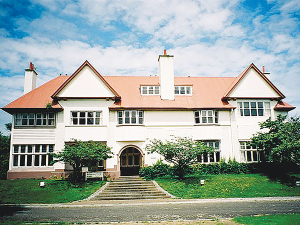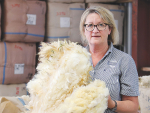But the chances of anyone who attended this iconic training establishment, setting foot on its hallowed turf as part of the celebrations, seem problematic. Alasdair Bettles-Hall, whose father Victor came to Flock House in 1929, is organising the centenary event which will take place on the weekend of July 21/22.
Flock House owes it's origins to New Zealand wool growers who in the days of WW1 agreed to a deal with the government of the day to buy their wool and later on-sell it. In the end, the government made money on this but offered the profit of £237,000 back to the growers.
They felt embarrassed by this and in the end decided to put the money into a fund to help the orphaned sons and daughters of Royal Navy, merchant navy and fishermen who lost their lives in the war. This was basically in recognition of the navy personnel who took their wool to market or protected the ships that did.
The wool growers purchased the Flock House estate and it was converted into a training institute for the orphans to learn farming skills. Between 1924 and 1931, about 750 went to Flock House. In 1937 the government bought the establishment and it then offered cadet training in farming to all New Zealanders. It was also used as a conference centre. One of Flock House's most famous principals was J.J. Stewart who coached the All Blacks.
In 1988 it was closed and is now in private hands.
What Bettles-Hall is hoping to do is to try and trace down descendants of the early orphan residents of Flock House.
"This is proving a wee bit harder that we initially envisaged, and we think this project may run from between three and five years. The other object is to celebrate the 100 centenary, and that is open to not only the original descendants but the approximately 2500 trainees who went through the establishment as farm cadets. It is also open to their instructors and anyone else who has memories of this iconic institution," he says.
Bettles-Hall has set up a website www.flockhouse.nz where people can register their interest and in time buy tickets for the centenary events.



















